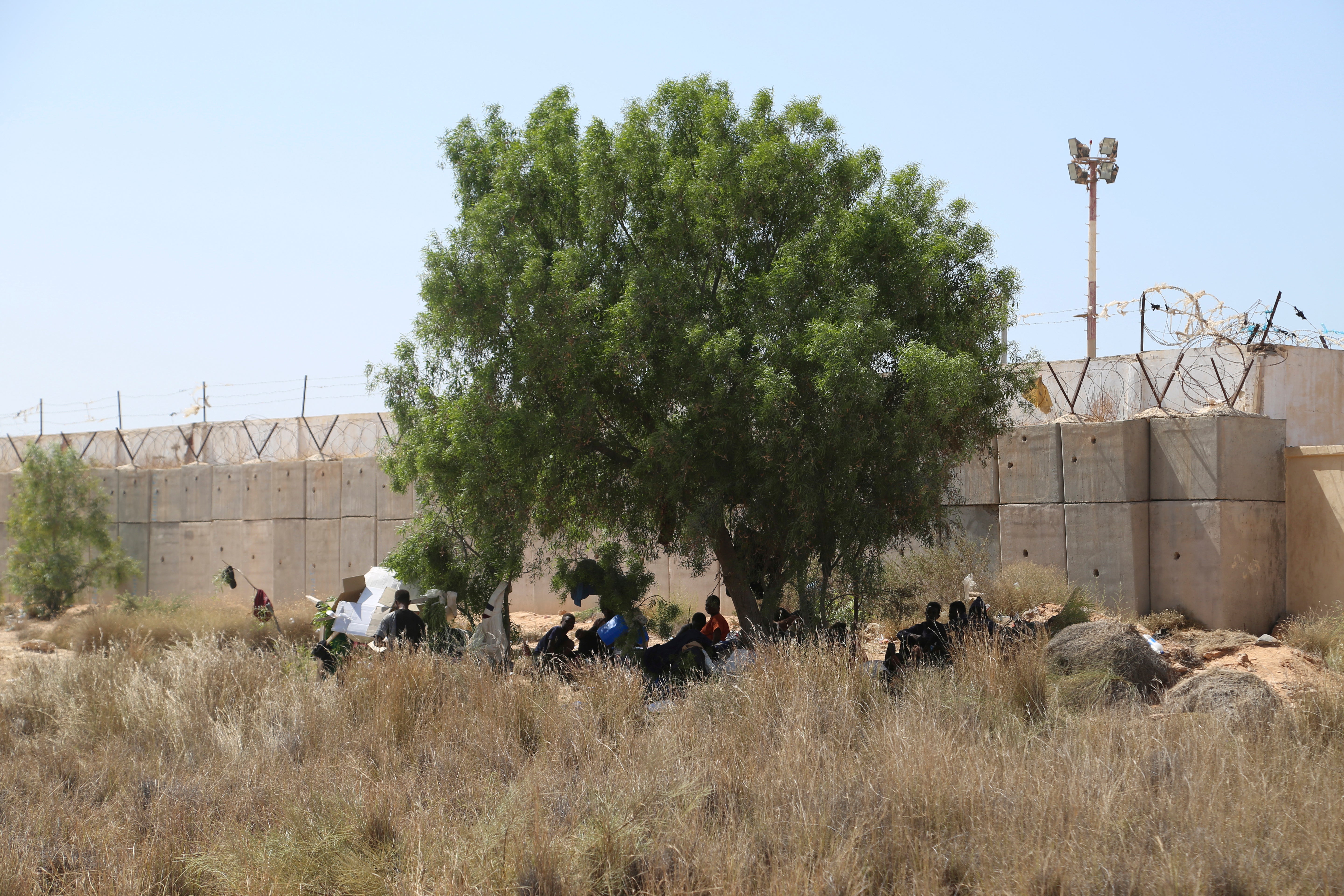At least 27 migrants found dead in the desert near Tunisian border, Libyan government says
Libyan authorities said at least 27 African migrants have died in the country’s western desert near the border with Tunisia

Your support helps us to tell the story
From reproductive rights to climate change to Big Tech, The Independent is on the ground when the story is developing. Whether it's investigating the financials of Elon Musk's pro-Trump PAC or producing our latest documentary, 'The A Word', which shines a light on the American women fighting for reproductive rights, we know how important it is to parse out the facts from the messaging.
At such a critical moment in US history, we need reporters on the ground. Your donation allows us to keep sending journalists to speak to both sides of the story.
The Independent is trusted by Americans across the entire political spectrum. And unlike many other quality news outlets, we choose not to lock Americans out of our reporting and analysis with paywalls. We believe quality journalism should be available to everyone, paid for by those who can afford it.
Your support makes all the difference.At least 27 migrants from sub-Saharan Africa have died in recent days in the country’s western desert near the border with Tunisia, Libyan authorities said.
In a statement posted on Facebook, Libya’s Interior Ministry said late Tuesday the bodies were discovered recently near the border and that a forensic team had been deployed to the area. In the same post, the ministry published pictures of African migrants receiving treatment from Libyan medical teams.
Mohamed Hamouda, a spokesperson for the Libyan government, on Wednesday confirmed the discovery of the bodies to The Associated Press, but declined to provide any further details.
In recent months, Tunisian security forces began removing some migrants from coastal areas, busing them elsewhere and, migrants say, dumping some of them in the desert. Earlier this month, Tunisia's Interior Minister admitted that small groups of sub-Saharan migrants trying to enter the country are being pushed back into the desert border areas with Libya and Algeria.
Tunisia’s eastern coast has overtaken neighboring Libya as the region's main launching point for migrants, mostly from sub-Saharan Africa, trying to get to Italy and other parts of Europe in small boats. With migrants pouring into the coastal city of Sfax and other launching points, tensions have risen between migrants and the local population.
The National Human Rights Committee in Libya, a local rights group that works with the Libyan authorities, said it believes Tunisian security forces had forcefully expelled the migrants, abandoning them in the desert without water or food.
Ahmed Hamza, head of the committee, told the AP the bodies were discovered by Libya’s border guard on Tuesday.
A spokesperson for Libya's border force denied recovering any dead bodies near the Tunisian border on Tuesday, but declined to comment further. The AP has been unable to reconcile the conflicting narratives.
At least 35 bodies have been recovered from the Tunisia-Libyan border since the migrant expulsions began in July, Hamza said. According to statistics compiled by the committee he chairs, more than 750 African immigrants have been forcibly expelled from Tunisia into Libya since July.
Black Africans in Tunisia have increasingly faced discrimination and violence since Tunisia’s President Kais Saied said that sub-Saharan migrants are part of a plot to erase the country’s identity during a speech in February.
In a separate incident Wednesday, 41 migrants are believed to have drowned after the boat carrying them capsized off the Tunisian coast.
Libya is a major transit point for Middle Eastern and African migrants fleeing conflict and poverty to seek a better life in Europe. The oil-rich country descended into chaos following a NATO-backed uprising in 2011 that toppled and killed longtime autocrat Moammar Gadhafi.
Human traffickers have profited from Libya's decade of instability, growing rich through international smuggling networks.